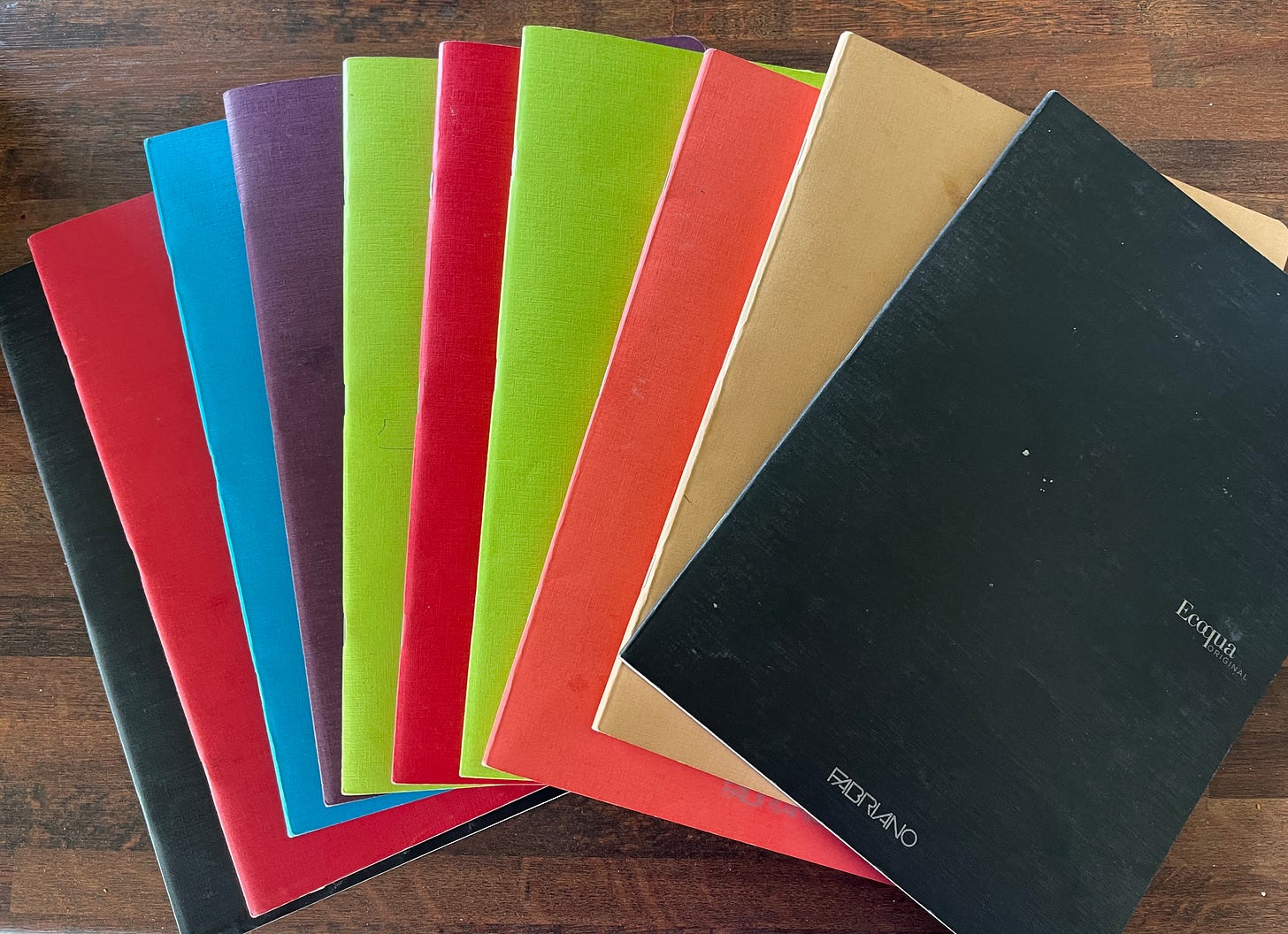A happy new year to you and all your people.
I, in what is becoming an annual tradition, celebrated the holiday period with a bad fatigue setback, meaning I had to quickly go from normal life as a go-getting peow peow modern woman to doing the dishes in six little efforts across the day.
I can now do my dishes almost all at once again and so I return to tell you more tales from the Library.
For years I have had a vague fear about living an unexamined life. I learned about Socrates at university, and I have always been preoccupied with doing the right thing, living the right way.
Well, if you are to know whether you’re doing the right thing, and you have the hollow echo of Socrates in your ear (“…not worth living! not worth living!”) you must closely examine it at all times, and spend a lot of time worrying about how much of life and existence and complex system emergence you feel responsible for but have no actual control over.
All this examining is part of the reason I got into the fatigue setback in the first place.
But then for Christmas, and not knowing any of this, my sister gave me the above book, The Happiness of Dogs: Why the unexamined life is most worth living by philosophy professor Mark Rowlands. She thought it looked kind of fun and expected me to exchange it, because I am loud and rude in my resistance to books I didn’t choose.
But instead, I spent my fatigued little summer holiday unable to journal, and reading a surprisingly human and accessible book about dogs, humanity, subjectivism vs objectivism in the meaning of life, and, spookily, why I might not need all that examination after all.
“…this is not a book about the benefits of being human; rather it is a book about its drawbacks. Specifically it is a book about the drawbacks of a certain, quintessentially human, trait. It is about the cost of the examined life and, in particular, the cost of the capacity that makes such a life possible: reflection.”
Rowlands’ thesis is that our capacity for reflection keeps us frequently divorced from experiencing and from exhibiting our natures, and instead puts us in the realm of watching, planning, assessing, and feeling complex mostly negative things about the life we mean to be living.
Despite its focus on dogs - the stars of tiktok - this is not a novelty book. Dogs can be serious subjects, philosophically!
Rowlands takes issue with the exclusively human focus of much traditional moral philosophy, seeing, as we all can, that all kinds of creatures appear to experience pleasure, meaning, passion. With dogs as his main example, Rowlands rejects a bit of Kant and Aristotle and says things like “this is clearly wrong” about philosophical tenets that have lingered for millennia. Instead he looks at what is in front of him (in a rigorous, academic, philosophy professor manner) and says things like:
“Meaning in life is authentic happiness, and happiness is authentic if it springs from nature. Dogs, however, have a nature in a much more robust sense than we do. The nature of a dog is a heavy, granite, slab of essence. Our natures, however, have fractured beneath reflection’s hard stare.
…We are self-interpreting creatures, and as such we have the most attenuated natures of all animals.”
This feels electric to me, and not just because he gave me a word (anthropofabulation1 ) to describe why I bristle at traditional philosophy.
We have the option to think about our existence, sure, and it’s good to pepper that in to the meal, obviously. But too often the constant examination of life directly undermines the actual experience and living of it, and the being of who we truly are. At least I have found this to be true for me, my year’s worth of reflection poured into over 10 journals.
The point is not that reflection should be swapped wholesale for total immersion in moment to moment living (although maybe the meditation teachers would disagree with me), but more that Socrates’ view about unexamined lives not being worth living must also be softened by its opposite, as with any all or nothing view: the totally examined life might not be worth living either.
Obviously this is a much longer, book-length argument, but I am pleased for the gist, and for the nudge away from total examined living. Perhaps this year I will limit myself to a mere 8 journals…
Luckily for me I do have my own instructor on an alternative middle way (pictured below), since as Rowlands signs off:
“Meaning in life exists wherever happiness erupts from nature. If you want to know the meaning of life, get a dog.”
May you have a dog, or have cause to observe one.
May you feel pressure neither to examine your whole life nor avoid examination altogether.
May we go into this new year, which feels more daunting than most, with a loving care for each other and our wider systems.
Until next time,
Katie
Anthropofabulation: “…a term coined by philosopher Cameron Buckner. …a pronounced human tendency to provide overcomplicated accounts of how we manage to do things.” (p 121)
Previously in The Living Library
Thanks for reading The Living Library, where we grapple with complexity and humanity and all the good stuff. Here are some highlights from issues past:
Hello, friend - Are you my client?
I am a coach, consultant and educator, working with people who are highly self-led and who care deeply, including highly sensitive and gifted adults. I work with clients on whatever they need support with, from playing bigger and living more authentically, to high sensitivity/giftedness integration, to crossroads decisions and explorations, to self actualisation and transformative change, to creative development, to leadership (and all the interconnected everything else inbetween).
If you like what you read in here, you may enjoy working with me. 😌 You can learn more in this post here:
Work with me 1:1
A little break from our usual fare, readers, as I let you know a little about my coaching and consulting practice.










Well, thank you for 'anthropofabulation'. I shall enjoy it like a dog's new toy.